The Best Workout Headphones
Turn on, plug in and work out with the best workout headphones, featuring top picks from Beats, Jabra, Apple and others
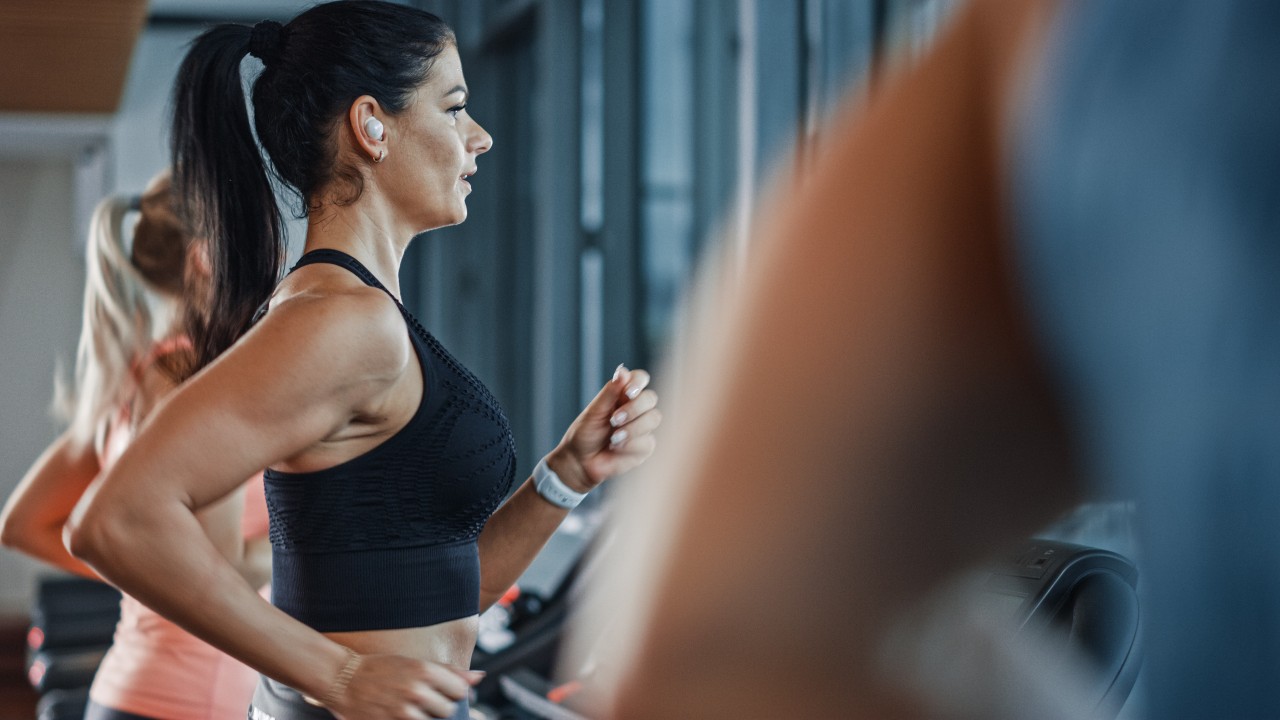
There are three areas in which the best workout headphones need to excel: fit, sound quality and battery life. For me, fit is the most important because continually adjusting a loose bud is irritating at the best of times, but especially hard to do when holding dumbbells.
My dislike of a loose fit means that all the top gym buds below are reliably secure on this front, no matter how intense your workout is. Once you can be sure the buds stay firmly in place, then other factors like great sound quality and battery life come into play, along with useful extras like passive and active noise cancellation. You can also rest assured that all the below are water-resistant enough to stand up to sweaty sessions, and many offer waterproofing beyond that standard.
How I Test Workout Headphones
You can trust Coach
I am primarily a runner and try all the headphones I review with several runs, but I also use them for a variety of gym workouts, including strength sessions, cardio machines and yoga.
The Best Workout Headphones
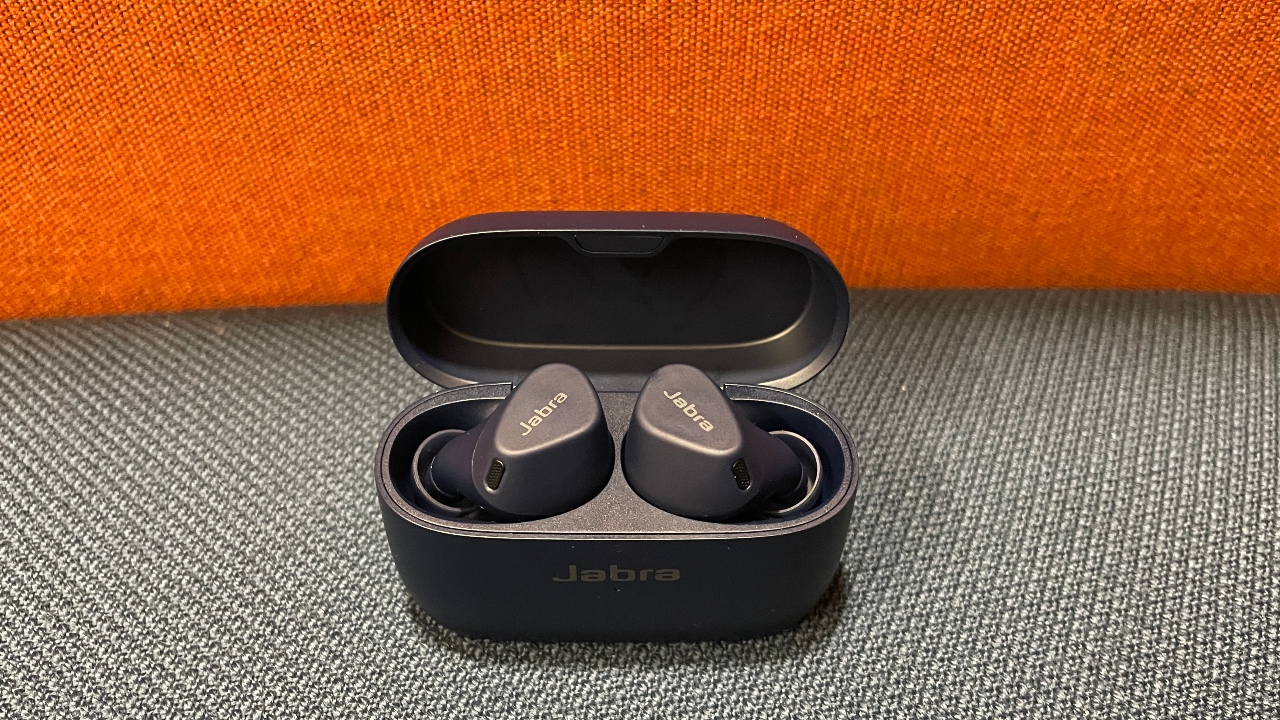

Specifications
Reasons to buy
Reasons to avoid
There are better headphones than the Elite 4 Active on this list—including Jabra’s Elite 8 Active buds—but the balance of price and features you get from the Elite 4 is outstanding. They offer all the features of more expensive buds, and while their sound and ANC isn’t as good as on other models, they’re solid on these fronts and work well as cross-over lifestyle/sports headphones.
The headphones are contenders for the best-value sports headphones, if the fit works for you—they have no wings or ear hooks, though I found they stayed in place securely during a variety of indoor and outdoor workouts. The Jabra Elite 4 Active are also often in sales, and can be found for less than $100/£100.
The battery life is impressive, at seven hours on the buds, with another 21 in the case. You can adjust the EQ in the partner app, and because they don’t have wings or a hook they’re comfortable to wear for long stretches when not exercising.
Find out what else earns this pair a place on our best workout headphones list in my Jabra Elite 4 Active review
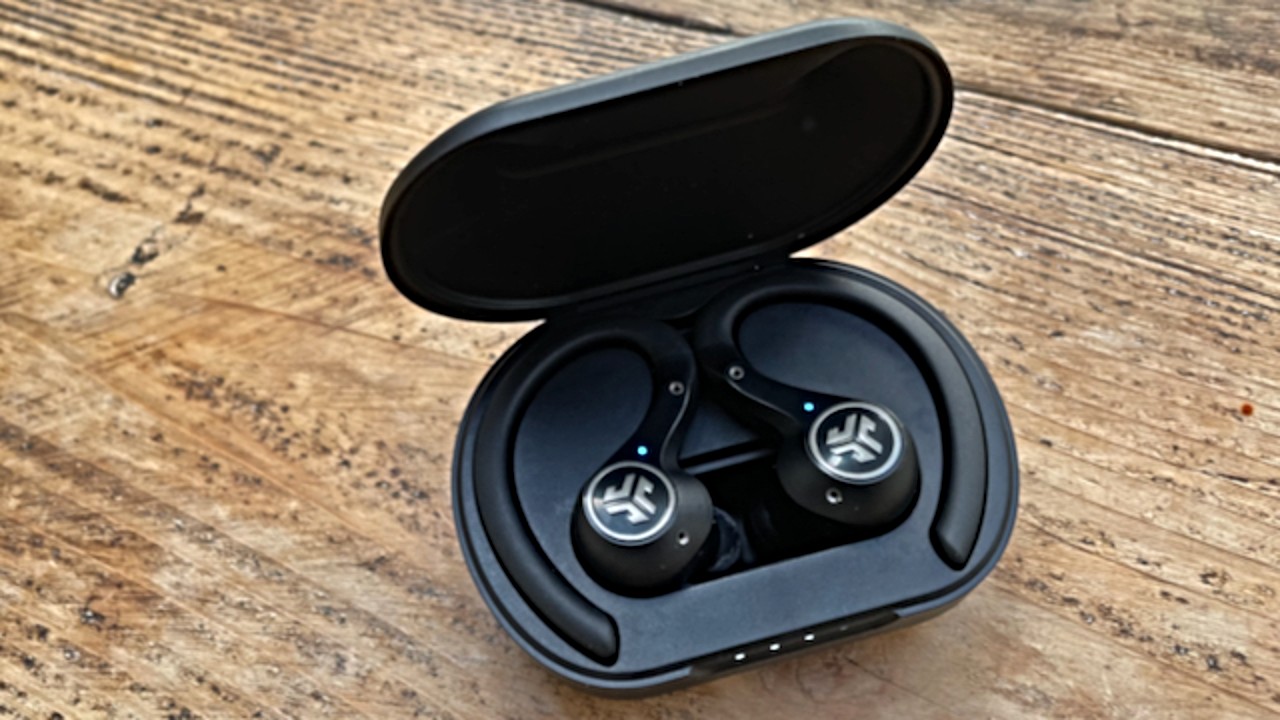
Specifications
Reasons to buy
Reasons to avoid
These get the fundamentals right, with a 15-hour battery life (plus another 55 hours in the case), an ear hook for a secure fit and solid sound quality. And you get all that for $99/£99.99 at most—the buds are almost always reduced in my experience.
The extra features are hit and miss: I found the active noise cancellation (ANC) blocked a disappointingly small amount of sound, but the adjustable Be Aware mode is excellent, letting just enough ambient noise in so you can hear what’s going on around you without ruining your music. The poor ANC is a minor quibble given the other positives you’re getting from these headphones, most notably that excellent battery life.
Read more about my experience with the best value workout headphones in my JLab Epic Air Sport ANC review
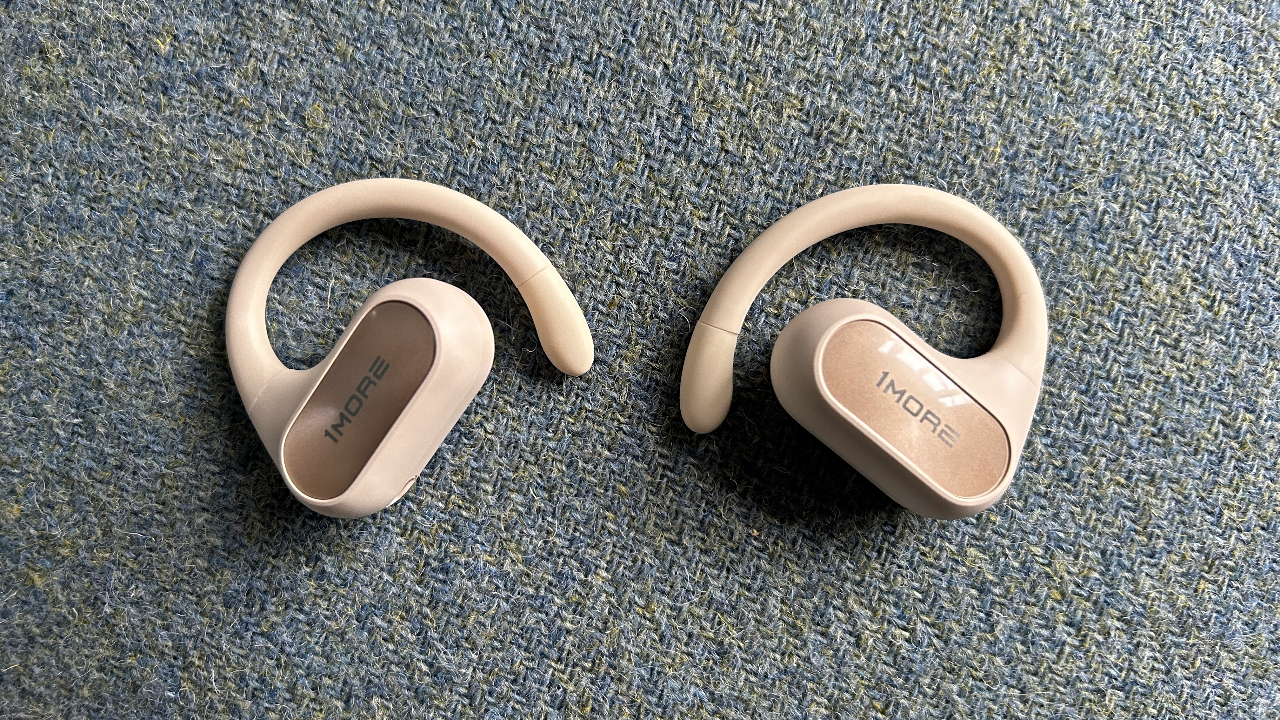
Specifications
Reasons to buy
Reasons to avoid
The 1MORE Fit SE Open Earbuds S30 offer a cheaper open option than the Cleer Arc II and most bone conduction buds, and are excellent value given that they sound pretty good, fit securely and last 10 hours on a charge. They’re not as comfortable as some open buds with a hook, and the sound doesn’t match the Cleer Arc II buds, but the S30 headphones are less than half the price of top-open options and easily outperform their price.
I’ve used the S30 headphones for runs, strength workouts and a yoga session and they stayed in place reliably. The only fit complaint I had was that the hook dug into the back of my ear after an hour or two of use. That does lessen their appeal for general use alongside workouts, but for those seeking extra awareness during training they are a great value pick.
Read more in my 1MORE Fit SE Open Earbuds S30 Review
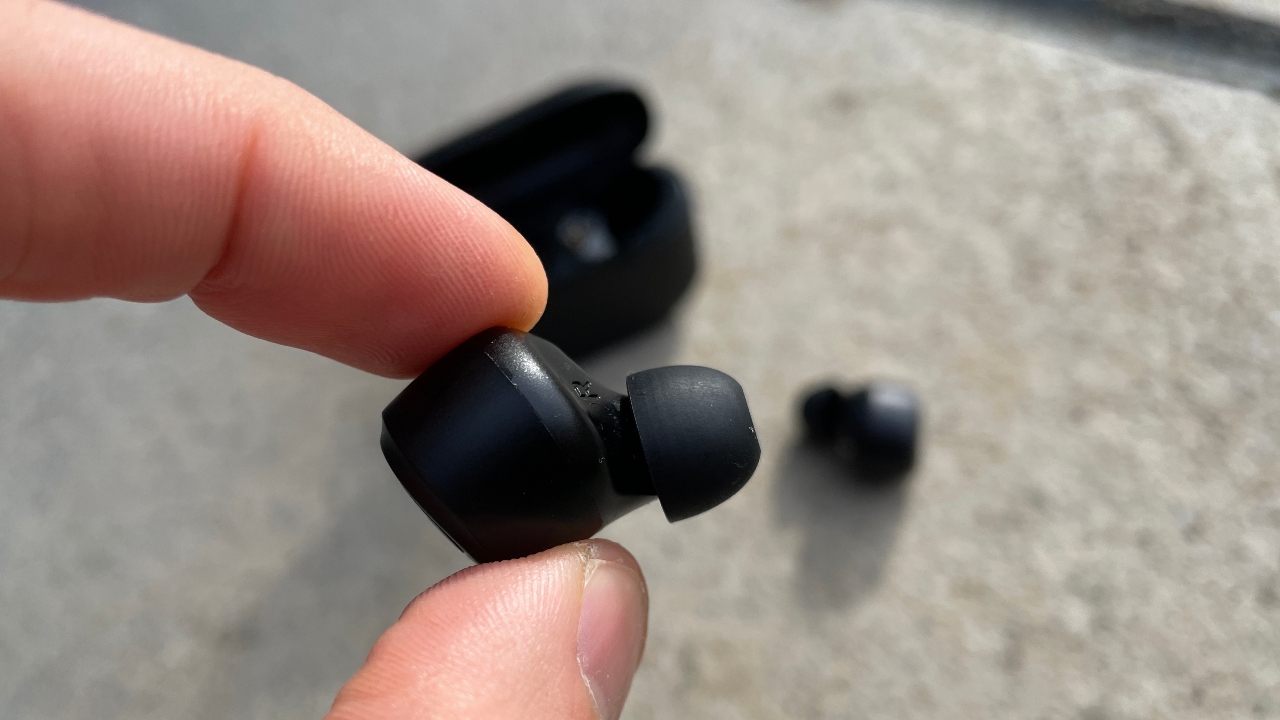

Specifications
Reasons to buy
Reasons to avoid
This is a silly price for headphones as good as the JLab Go Air Pop, which offer similar features to headphones that cost five times as much. The sound quality is solid, the battery life excellent and I found the fit good too, though the lack of wings or an ear hook may mean they’re not the best pick for those who regularly engage in energetic HIIT workouts with lots of jumping. If that’s you, I’d recommend checking out the JLab Go Air Sport, which are a little more expensive but have an ear hook design for a more secure fit.
One feature I particularly like about the Go Air Pop and other JLab headphones is that the charging cable is built into the case so you don’t lose it. Unless you lose the case, of course, but then you have bigger problems since you can’t charge the buds at all without the case.
Find out more about these best budget workout headphones in my JLab Go Air Pop review
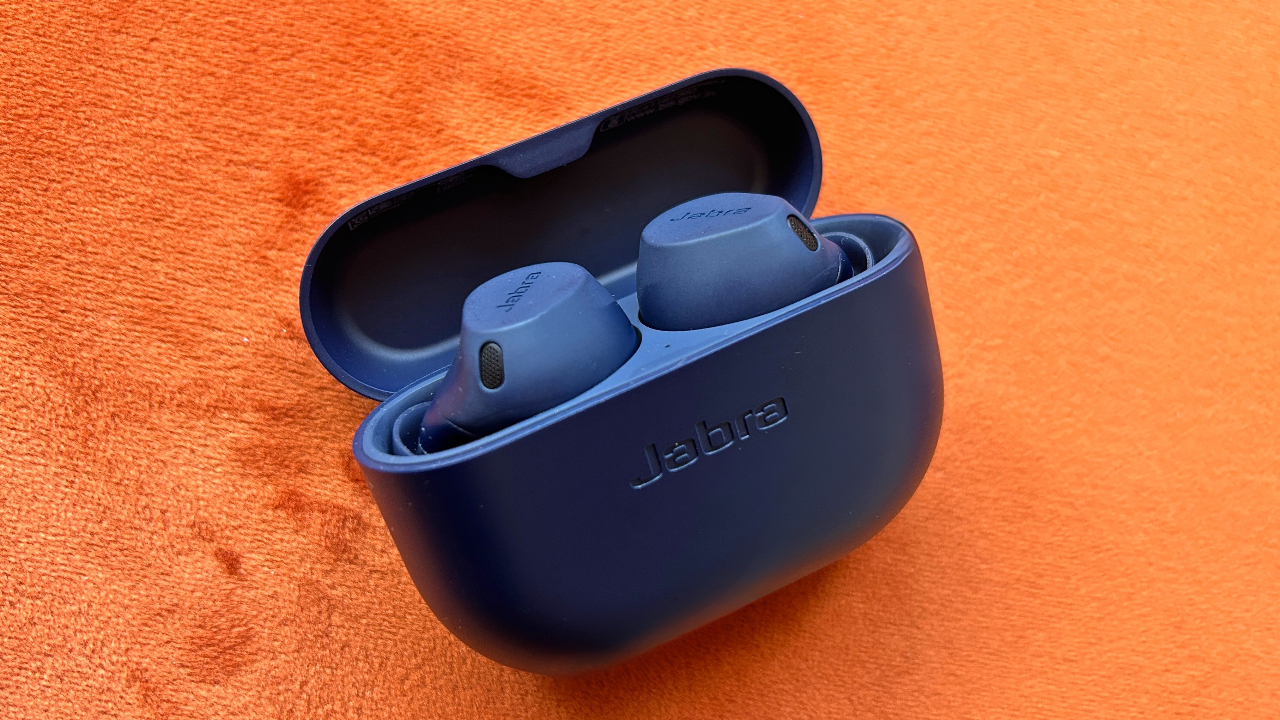
Specifications
Reasons to buy
Reasons to avoid
The Elite 8 Active are at the top of Jabra’s range of sports headphones and, given that, you’ll perhaps wonder why I’ve picked the Elite 4 Active ahead of them for best overall buds. That’s down to the balance of value and features on the Elite 4 Active—because the Elite 8 Active are an upgrade in pretty much every way. I rate them better than anything else you can get at their price, including the Beats Fit Pro.
The Elite 8 Active look similar to the Elite 4 Active but they have a ShakeGrip coating that improves the fit and offer Dolby Spatial Audio along with improved ANC. The battery life is also better, especially if you turn the ANC off, in which case you can get up to 14 hours from the earbuds, which is fantastic.
Read more in our Jabra Elite 8 Active review
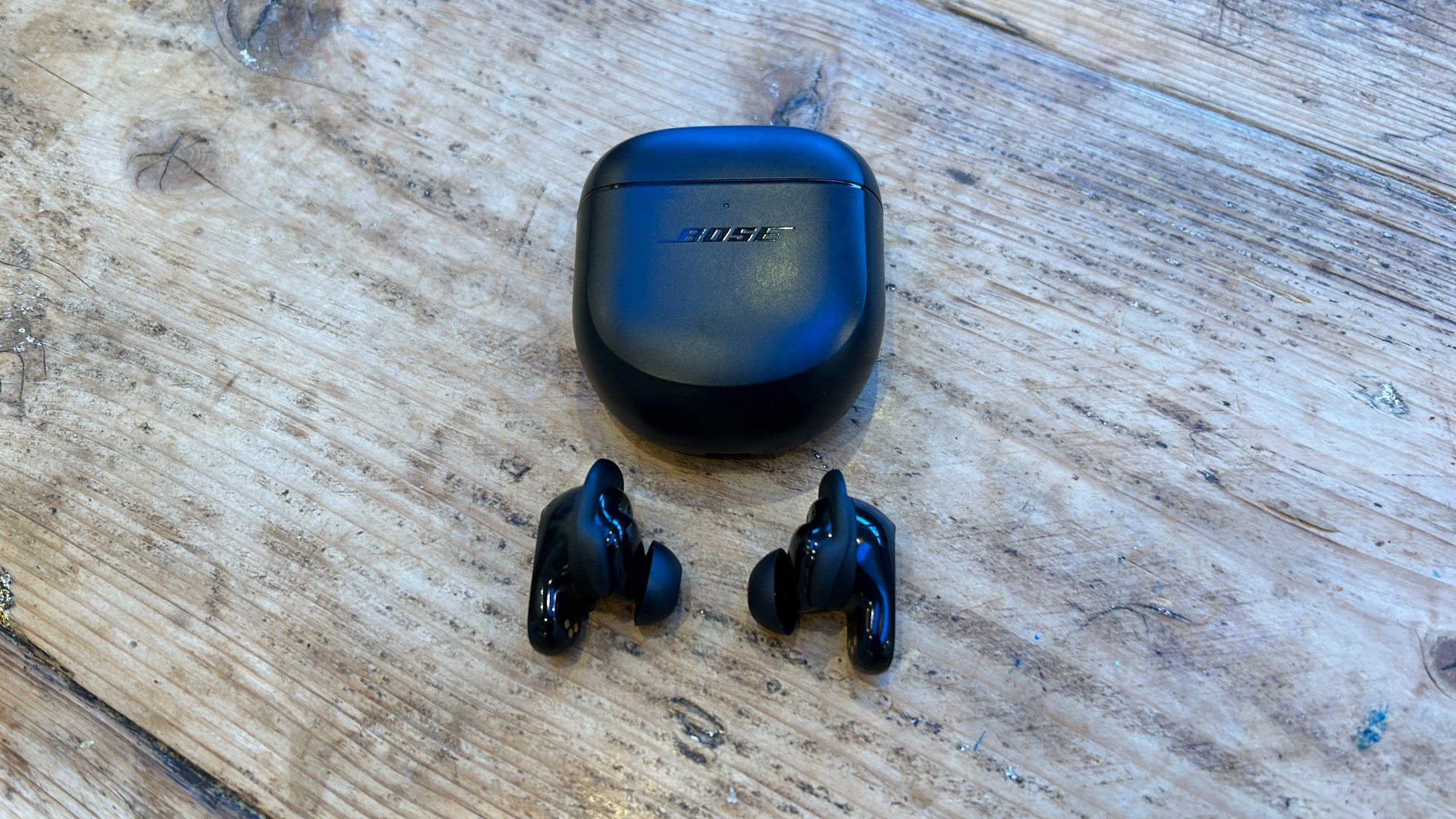
Specifications
Reasons to buy
Reasons to avoid
The QC Earbuds II are Bose’s top-of-the-range in-ear lifestyle headphones, offering best-in-class ANC and terrific sound quality as you’d expect, and the stability bands the buds come with offer a secure enough fit for sports use as well. The headphones come with bands and tips in three sizes, and you can buy a set of XS and XL tips/bands from Bose if your ear holes don’t match that size range. I found that picking up the XL bands was worth doing for sports use, just for the extra security of fit they create.
As a result the QC Earbuds II are fantastic headphones for both general life and the gym. The fit is comfortable for many hours of use even when using the large stability band for extra security during workouts. The headphones also have an awareness mode and last six hours on a charge even with the ANC enabled.
Before you spend that kind of money, we’re sure you’ll want to know more, so read my in-depth Bose QuietComfort Earbuds II review
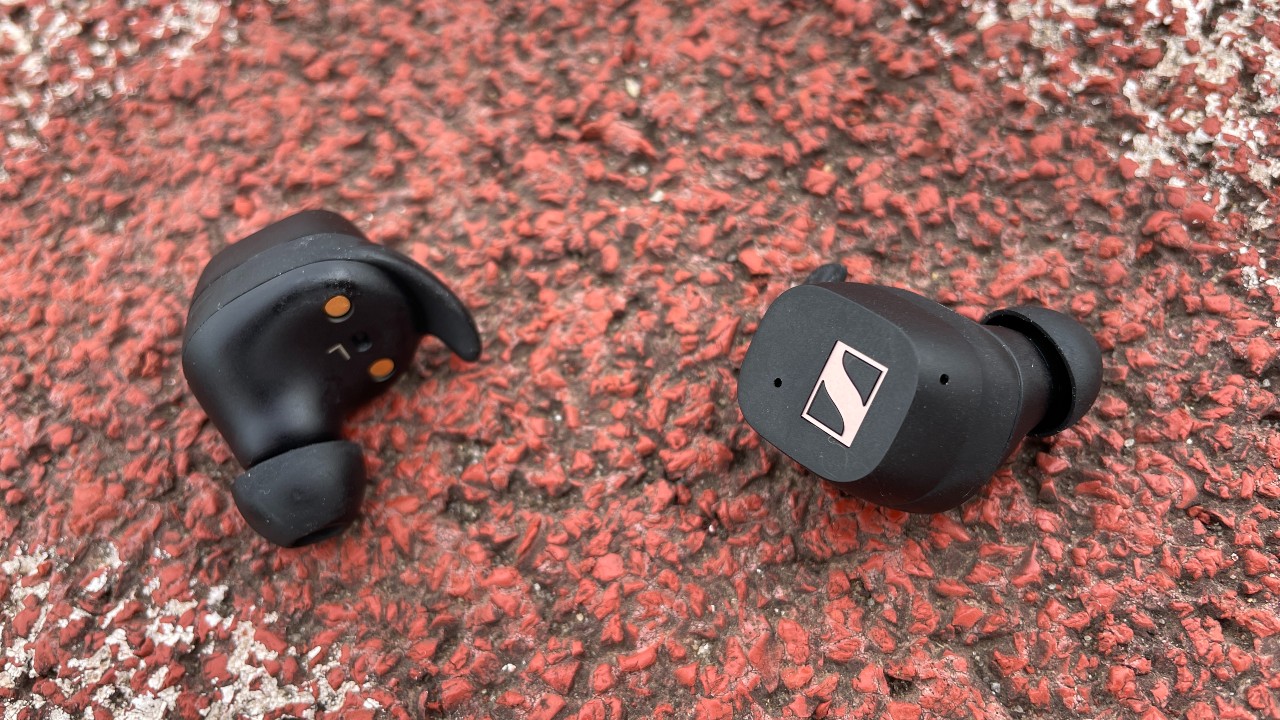
Specifications
Reasons to buy
Reasons to avoid
Sennheiser’s sportiest truly wireless buds offer the fantastic sound quality you expect from the brand. The Focus EQ mode offers clear and natural sound, and the Aware mode powers up the bass.
Unlike Sennheiser’s other truly wireless headphones, the Sport True Wireless have wings to create a secure fit for exercise. I found that these compensated for the chunky size of the buds, though they’re not the most comfortable to wear for long periods. The battery life is up there with the best at nine hours, with another 18 in the case.
There are no ANC or awareness modes with the headphones, however, and while Sennheiser includes two kinds of ear tips—one to block more external noise and one that lets in more external sounds—I found that swapping between them didn’t make much difference.
Read more about these great-sounding workout headphones in my Sennheiser Sport True Wireless review
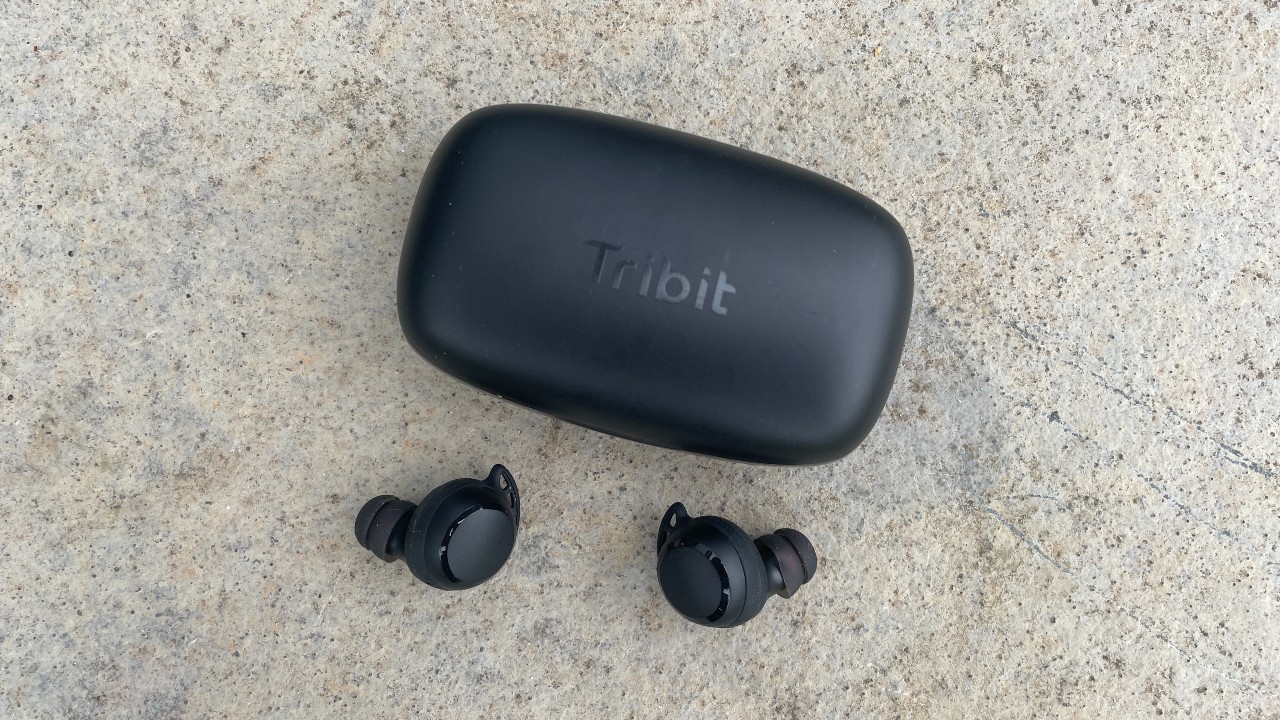

Specifications
Reasons to buy
Reasons to avoid
The Tribit Flybuds 3 are another top option for bargain-hunters, and they have a more secure fit than the JLab Go Air Pop because they come with wings in three sizes. The sound quality matches that of headphones that cost twice as much, and Tribit continues to improve the buds, which now have more battery life and a better waterproof rating than when I tested them. The battery life in particular is excellent, with eight hours on the buds and another 142 in the case.
Read more about these bargain workout headphones in my Tribit Flybuds 3 review
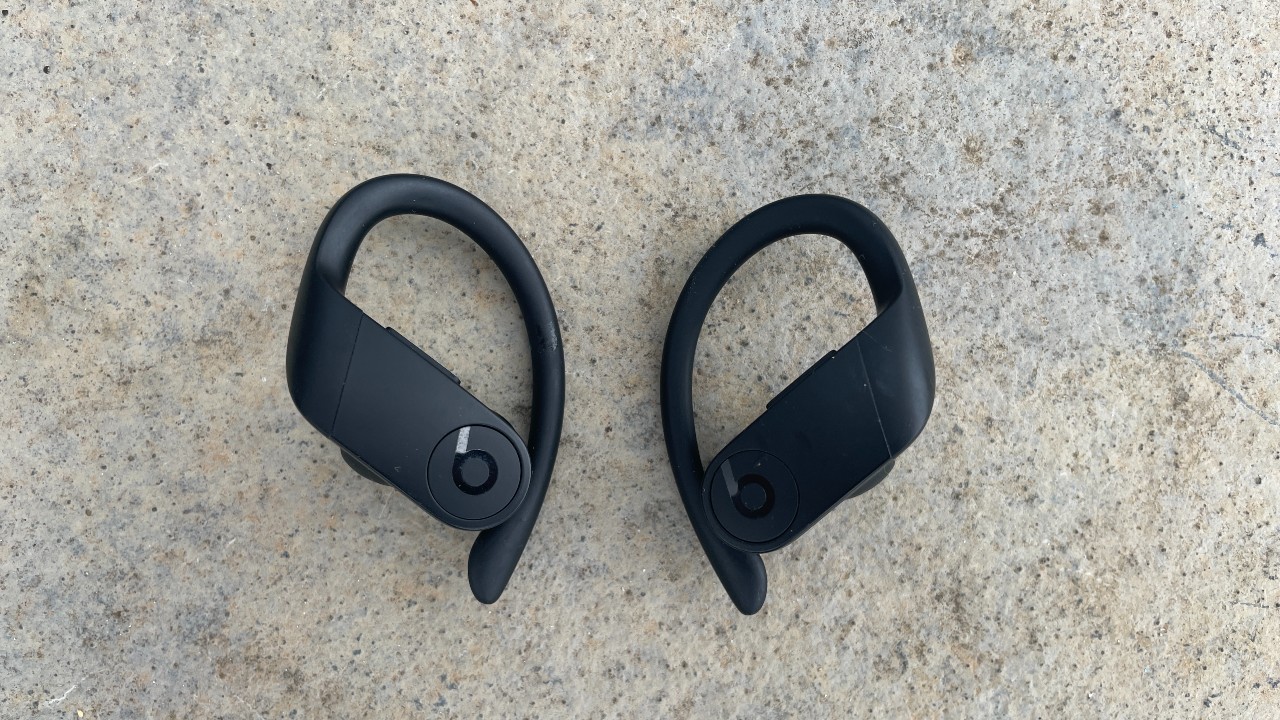

Specifications
Reasons to buy
Reasons to avoid
The Powerbeats Pro are elder statesmen of the wireless headphone world, having come out in 2019, but they still more than hold their own and I prefer them to the newer Beats Fit Pro. These offer ANC and have a smaller in-ear design that uses a wing to keep the buds in place during workouts, but I found this wing uncomfortable and the fit of the Powerbeats Pro is more reliable in the gym thanks to its earhook.
Their battery life is impressive too—the buds last for nine hours before they need to go back in their case for a recharge. The ear hook design means there’s no chance of the bud being dislodged during workouts, whether you’re running, doing burpees or head-banging to your gym playlist. The sound quality also impresses and while the RRP seems eye-wateringly high, the Powerbeats Pro are almost always available at a big discount, and I often notice they are reduced substantially during sales periods like Black Friday.
Discover how outrageously quick they are to charge in my Beats Powerbeat Pro review
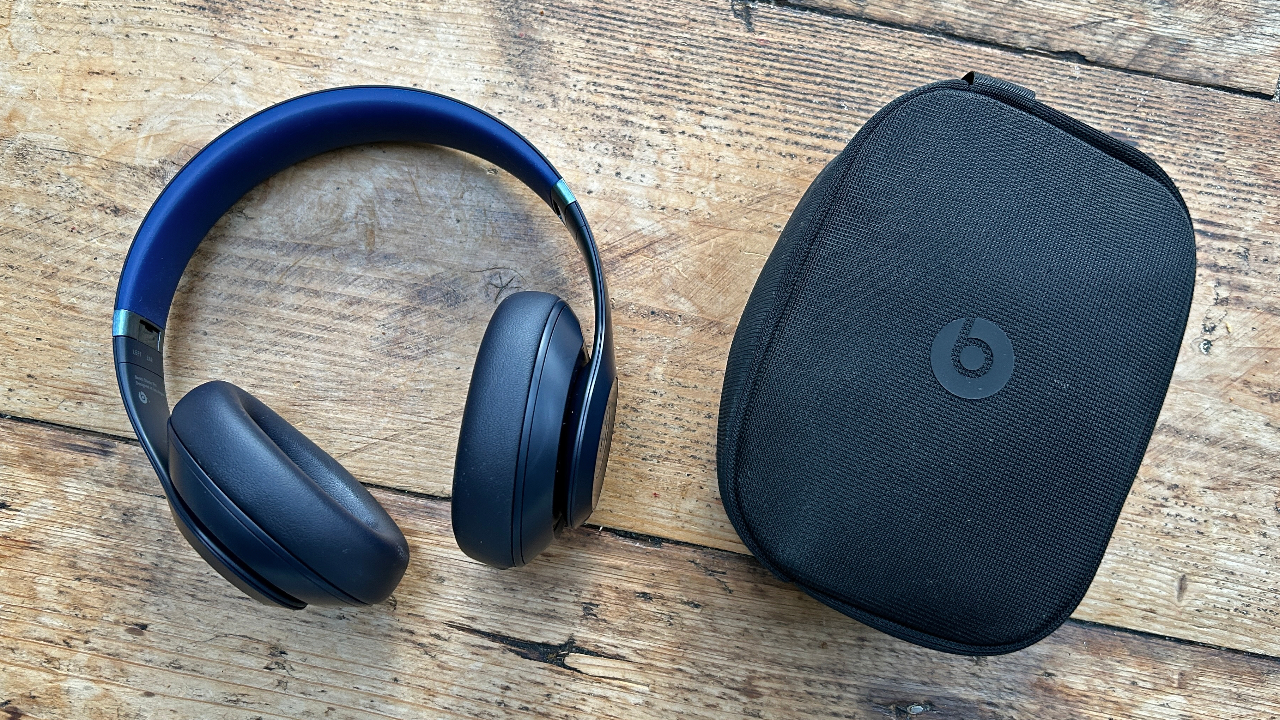
Beats Studio Pro
Specifications
Reasons to buy
Reasons to avoid
If you prefer to use over-ear headphones in the gym, the Beats Studio Pro have a comfortable and secure fit that keeps them in place for a variety of workouts, including weights sessions, core workouts and treadmill runs. They can get a bit hot, and I wouldn’t do my sweatiest workouts in them because the headphones don’t have an IP rating to indicate their water resistance, but for lower-intensity sessions they work well.
While they are expensive and not as practical for workouts as the best in-ear buds on this list, the Studio Pro headphones deliver better sound and ANC in particular than in-ear buds. They also last a long time on a charge and you can get four hours of playback from just 10 minutes of charging, which is handy if you find they’re out of juice just before a workout or a long trip.
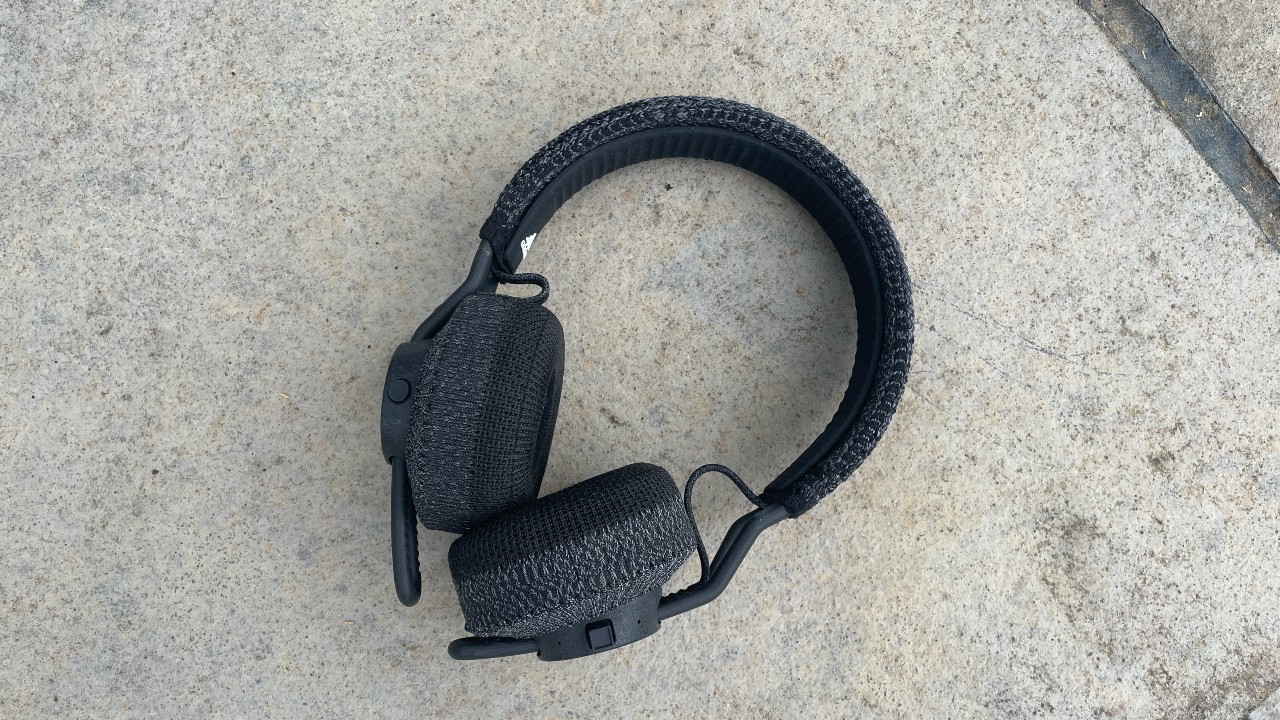
Adidas RPT-01
Our expert review:
Specifications
Reasons to buy
Reasons to avoid
The knitted ear cushions and inner headband on these headphones are removable and washable, so you can wear them in the gym confident that you’ll be able to clean the sweat off afterwards. I found that the tight fit of the headset can become slightly uncomfortable if worn for long stretches at your desk, but it’s ideal to keep the RPT-01 cans in place during a workout. The 40 hours of battery and excellent sound you get as a result of the bigger on-ear design is a major positive compared with in-ear options. That said, while they’ll stay put for strength training, you may well find in-ear buds are more secure for plyometric exercises and treadmill workouts.
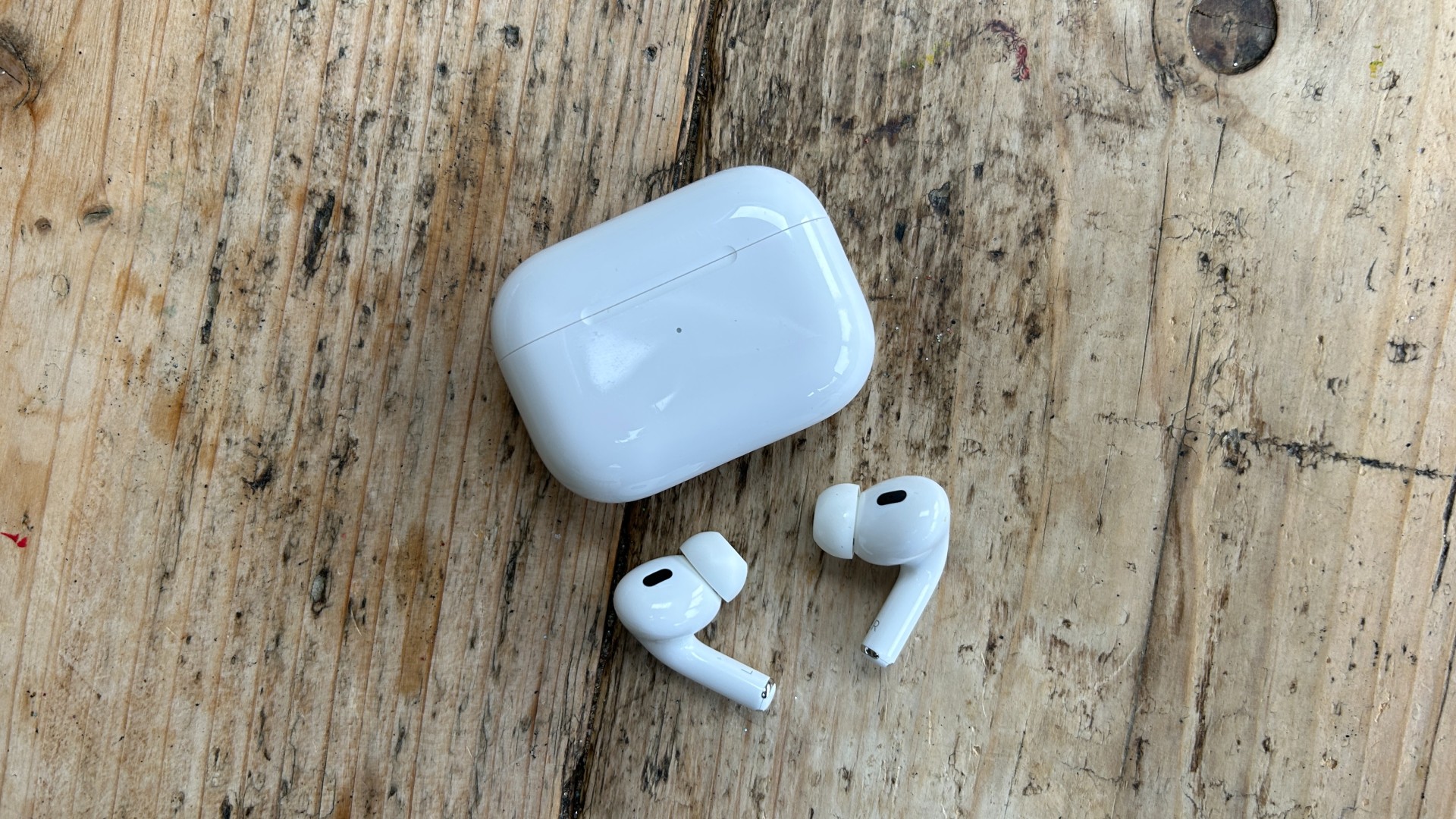
Specifications
Reasons to buy
Reasons to avoid
The AirPods Pro 2 sound fantastic and offer exceptional active noise cancellation given how small they are. The battery life has been improved over the original AirPods Pro too: The buds last six hours on a charge even when using ANC, and you can now change the volume by swiping on the stem of the headphones.
I sometimes find the fit of the in-ear buds too loose during workouts, but if you don’t experience this problem then the AirPods Pro 2 are simply top-notch all-round headphones you can also use in the gym. They don’t come cheap, however, and there is better value out there, especially in Jabra’s range of in-ear buds.
Read more in my Apple AirPods Pro 2 review
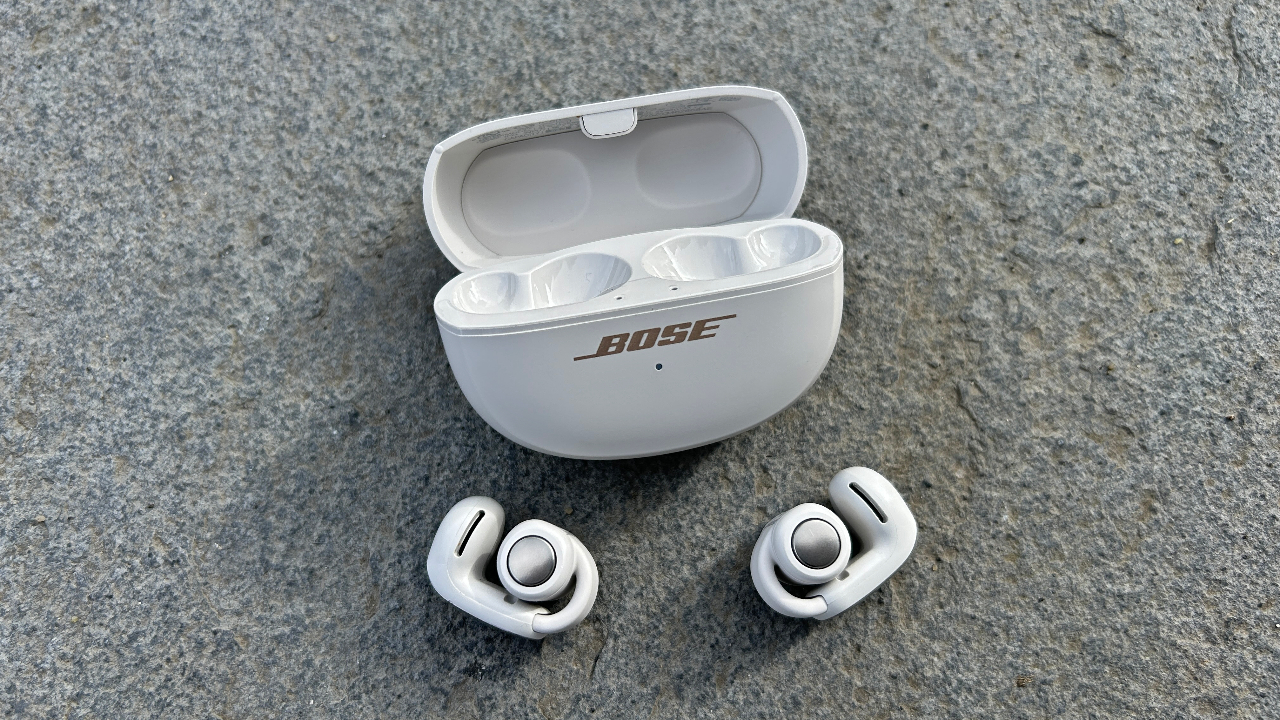
Specifications
Reasons to buy
Reasons to avoid
The Bose Ultra Open Earbuds are the most comfortable and best-sounding open headphones, with an innovative design where the buds clip onto the side of your ear, which also means they’re easier to wear alongside glasses because they don’t hook over the top of your ear.
I found that they were comfortable to wear for several hours at a time, and stayed in place during a variety of workouts, including strength sessions and a lot of running. They’re not fully waterproof but their IPX4 rating is enough to see off sweat and rain without any durability fears.
Where they stand out from other open buds, however, is their sound quality. The speaker that hooks inside your ear without blocking it delivers crisp and powerful sound, with more impressive bass than I’ve come across with other open buds. They’re expensive, but if you’re all in on awareness with your workout headphones, the Bose Ultra Open Earbuds are the best you can get.
Read more in my Bose Ultra Open Earbuds review
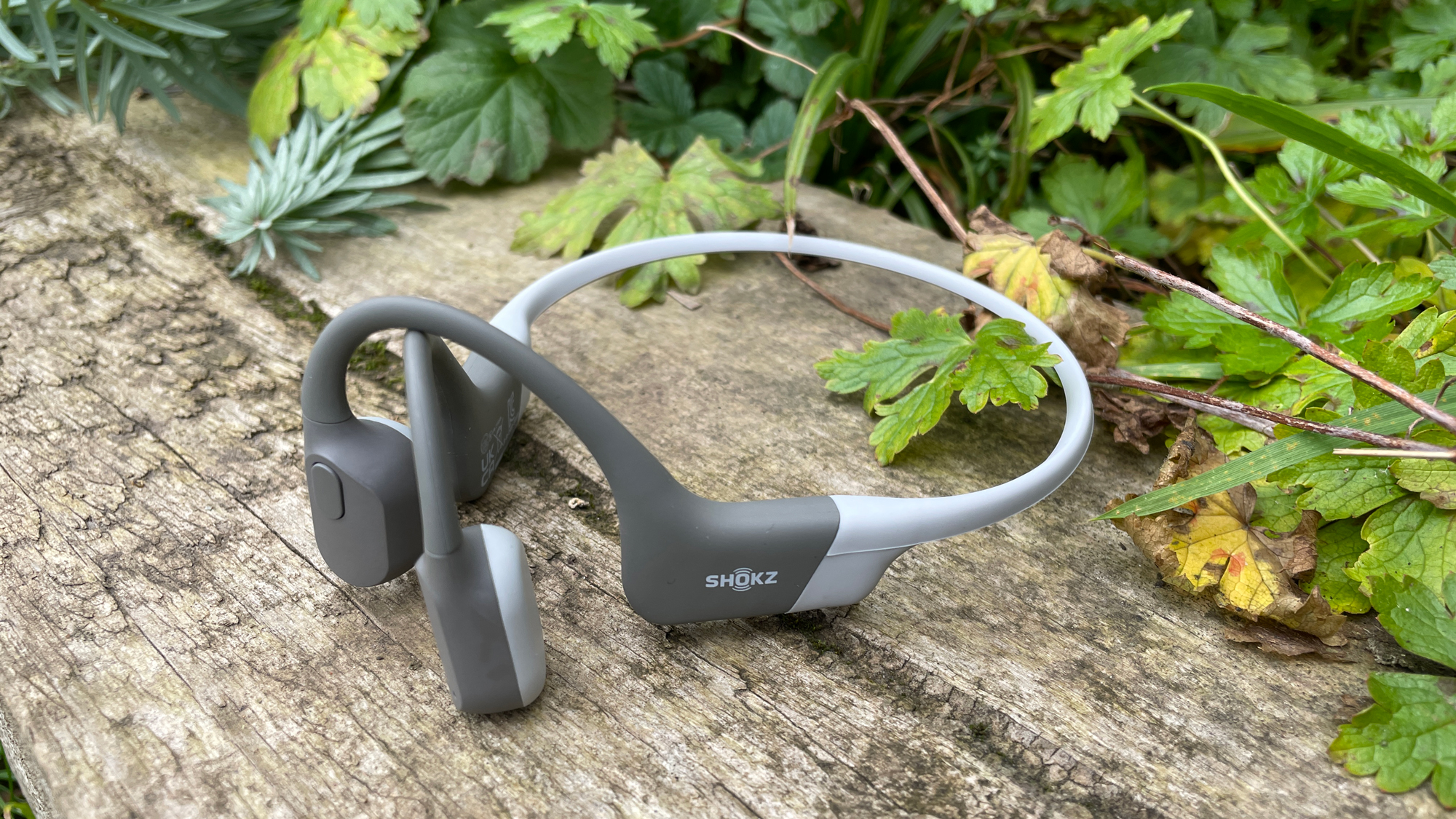
Specifications
Reasons to buy
Reasons to avoid
Once known as AfterShokz, Shokz is the dominant force in the bone conduction headphones market, and the OpenRun are the best buds in its range. They’re cheaper than the OpenRun Pro, have a higher waterproof rating, and sound very similar. These headphones have a lightweight open design that allows you to remain aware of your surroundings while still enjoying your audio, which is delivered via your cheekbones.
The sound quality you get from this process is not as good as with in-ear buds, but I found it’s still enjoyable to listen to music and audiobooks and on the sound front the OpenRun are better than cheaper sets of bone conduction buds. The battery life is good at eight hours, and you get 90 minutes of playback from a 10-minute charge.
The OpenRun headphones come in two sizes, and the Mini version has a 0.83in (21mm) shorter band. This means it sticks out less from the back of your head, which is handy when doing exercises where you lie with your head on the floor or a bench. I prefer the snug fit of the Mini in general, and they are identical to the standard OpenRun headphones for features and battery life.
Find out why I think this cheaper pair are better workout headphones than the OpenRun Pro in my Shokz OpenRun review
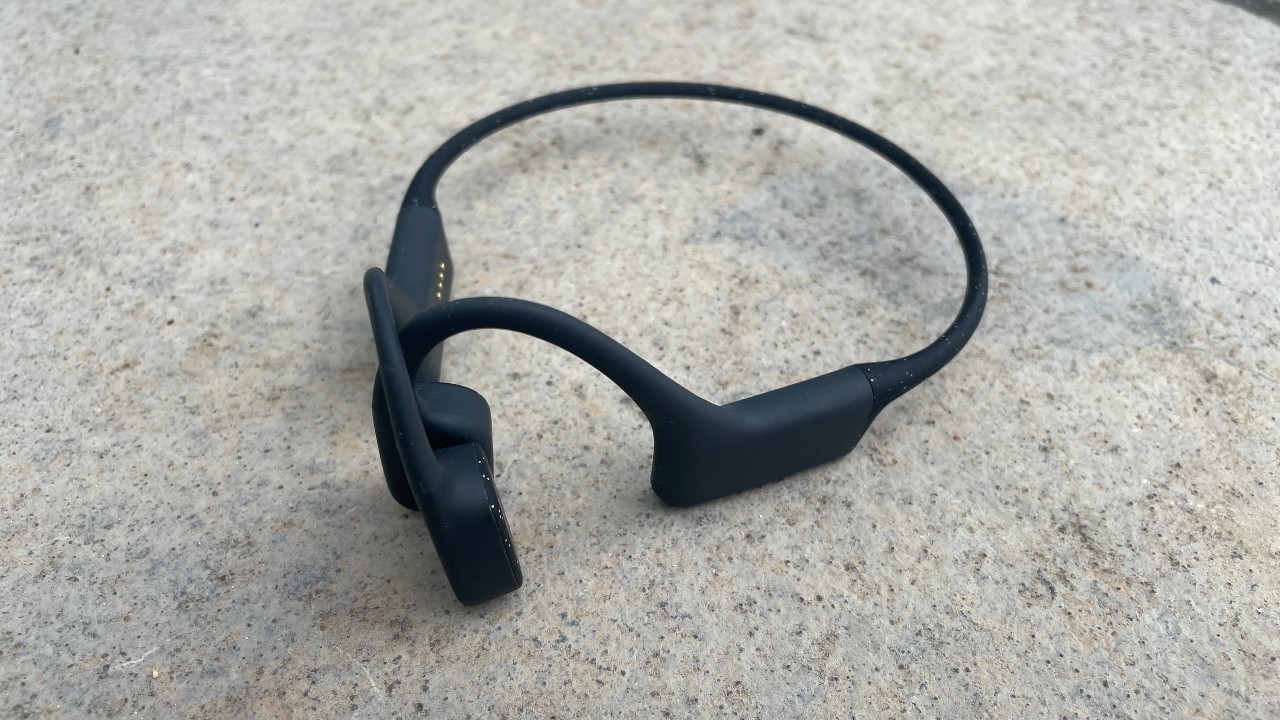
Specifications
Reasons to buy
Reasons to avoid
These bone conduction MP3 headphones don’t have Bluetooth, but they do have 4GB of storage for your music and podcasts, and they’re IP68-rated, meaning they are waterproof enough to withstand two hours of submersion in water up to two meters deep. The bone conduction technology also works wonders in the pool thanks to the special swim EQ setting which is required to reduce the bass because of how well sound travels under the surface. It takes a moment or two to get the headphones positioned with goggles and a swimming cap, but once they’re in place, there are no better buds for swimmers looking to reduce the monotony of logging laps in the pool.
Find out more about our experience with these headphones in the pool in my Shokz OpenSwim review
Workout Headphones Buyer’s Guide
Key features to look out for in workout headphones.
Style
In-ear headphones are the most popular workout buds, with a range of options available to suit all budgets. Open headphones that don’t block the ear canal are becoming more popular, since they allow you to stay aware of your surroundings while listening to your audio. Bone conduction headphones are a popular kind of open bud, while another type is headphones that have a speaker near your ear canal but don’t block it. If you’re sticking to fairly slow-moving workouts, on-ear buds can be a good option too, though they tend to get unpleasantly sweaty or fall off if you’re doing anything too vigorous.
Fit
The number one thing to look for is a secure fit because it doesn’t matter how good the buds are if they fall out of your ears when you get sweaty or start jumping around in workouts. Some headphones use wing-tips or a hook to make them more secure; the downside being this can make them uncomfortable. Others rely on the in-ear tip and a lightweight design, although I’ve found this rarely works for me. I usually need a hook or a wing-tip with my workout headphones to stay in place.
Sound quality
You definitely want workout buds to sound good to help motivate you through your training. In-ear or even on-ear buds usually sound the best compared to open and bone conduction headphones. For the most part, the more you pay the better the sound you get. However, the days of cheap headphones sounding dreadful are over. You can get buds that are enjoyable to listen to for less than $100/£100.
Most headphones now have a partner app that allows you to customize the EQ settings on the buds, which is useful in getting the precise soundscape you want.
Battery life
Even the smallest in-ear buds should last at least five hours on a charge, but some will go for more than 10 hours. The bigger the buds, the better the battery life, usually, and most truly wireless headphones of all types come with a case that doubles as a charger. This means you can go weeks without needing to plug anything in to charge.
Water resistance
The most water-resistant headphones will have an IPX7 or IPX8 rating, which means they’re waterproof. However, you don’t need such a high rating for workout buds. In my testing, I’ve found that any buds with a rating of IPX4 or higher are untroubled by sweat and rain during workouts over long-term use. I’ve tested buds with a rating of IPX2 as well, which have been fine in limited testing, although I’d recommend looking for a minimum of IPX4 with workout headphones.
Of course, that’s for general use, not swimming. If you’re looking for swimming headphones then IPX8 as a minimum is wise, and note that Bluetooth doesn’t work underwater so you’ll need headphones with MP3 storage or a wired connection to a waterproof music player.
Active noise cancellation (ANC)
It’s not essential for workouts, but ANC is a useful extra that can help you focus by filtering out (annoying) gym music, and also makes the headphones more useful outside of training, especially when traveling. ANC is available on headphones at most price points, but as with sound quality the more you pay the better the performance. The best buds for ANC I’ve tested, so far, have been the Bose QC Earbuds II and Apple AirPods Pro 2, which cost more than $200/£200.
Awareness
Awareness comes in two forms. Either buds have an awareness/transparency mode that uses mics to filter in external sounds alongside audio—this is common on in-ear buds—or they’re designed to not block your ear canal, so you can hear the surroundings. This is especially useful for outdoor workouts, but it’s often handy to hear what’s going on around you in the gym too.
Controls
It’s useful to be able to control playback, raise and lower the volume and answer/end calls without getting your phone out during workouts, and most headphones offer a version of this. Buttons are usually more reliable to use with sweaty fingers, in my experience, but touch-panel controls are now more common. These can be fiddly and annoying to use, or well designed, and so it can be a lottery as to which is the case—even expensive headphones can mess this up. I dive into how easy to use the controls are on headphones in my reviews but, in terms of what to look for, it’s handy to be able to customize the controls in a partner app.
Get the Coach Newsletter
Sign up for workout ideas, training advice, reviews of the latest gear and more.

Nick Harris-Fry is a journalist who has been covering health and fitness since 2015. Nick is an avid runner, covering 70-110km a week, which gives him ample opportunity to test a wide range of running shoes and running gear. He is also the chief tester for fitness trackers and running watches, treadmills and exercise bikes, and workout headphones.
